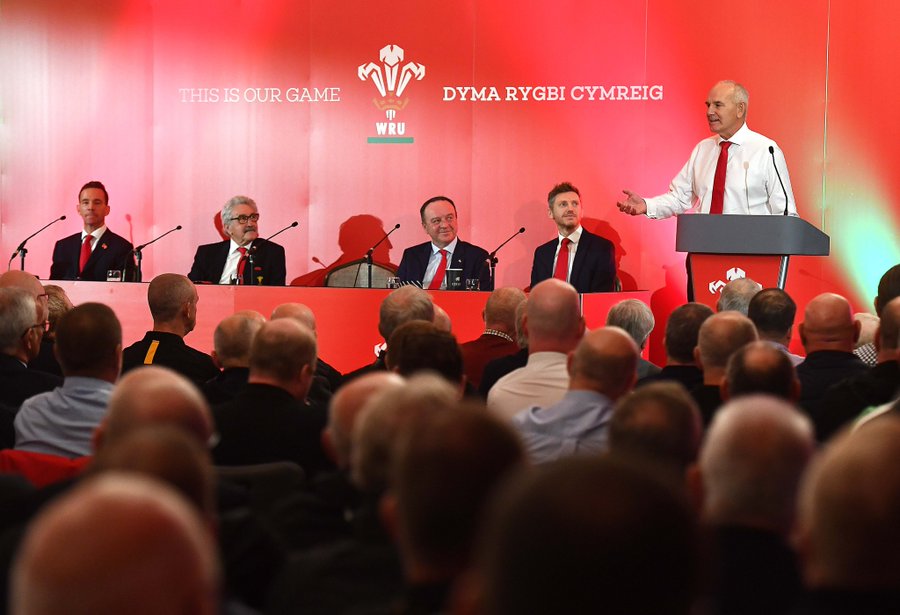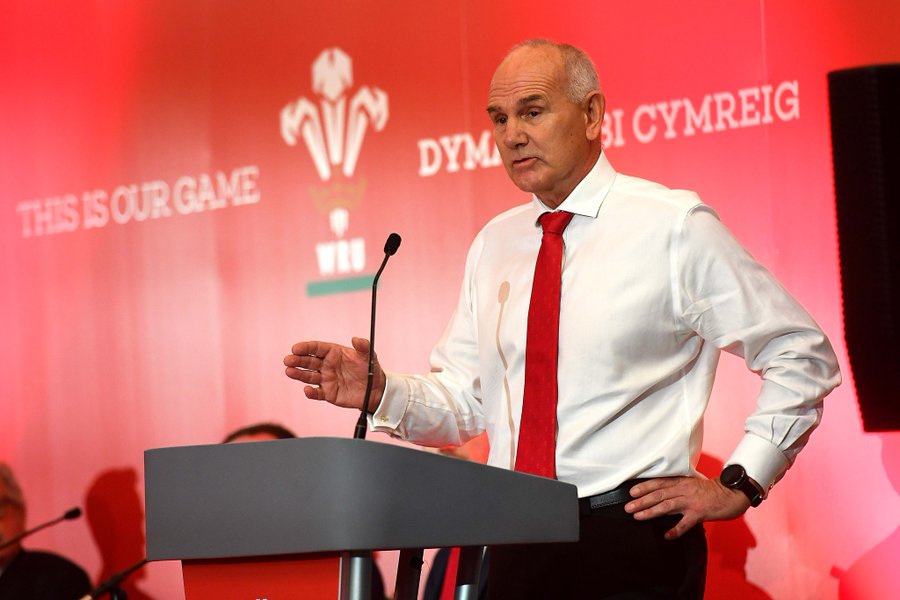Last Sunday saw the WRU AGM take place in the Westgate Hotel, Cardiff. The biggest discussion point following the meeting notes being released was that clubs didn’t manage to reach the 75% voting quota for a new independent Chair.
Robert Rees spoke to clubs on both side of the fence to hear their views.
WRU AGM
The motion placed was that there would be a new independent Chairman on the WRU’s executive board, overseeing the £100m business. With the WRU being listed as a Limited Company, the articles of association dictated they would require a 75% majority to pass motions, this one falling short by 10%.
Over 270 clubs were present, and held two votes each – a separate motion has changed that to one vote each from next year’s AGM.
The game in Wales has needed a separation of the pro and amateur sections for some time now and this seemed like an opportune time to get that in motion. However, some clubs have viewed this differently and voted against the motion.
Speaking out at his seventh AGM, Aberavon Quins Secretary Stuart Broad has voiced his club’s opinion on why reform was not required.

Speaking exclusively to Last Word on Rugby, Stuart said, “special resolution motions should be submitted before August 5, but our club didn’t receive the agenda until first week of October, others had it late September. Rob Butcher attended district meetings, said the executive board stance and spoke quickly about all the motions, it seemed like he was burying the big ones. When we tried to discuss the major points (independent Chair), he said he had to go to district H and left for the meeting.”
“There is a growing lack of trust in the business people that run the WRU, that they’re killing the clubs,” said Stuart.
“Our other reflection,” he added, “the WRU is a brand and we’d argue in agreement that we need these businesspeople running the business. Our argument is those who run the business, their first priority is to look after the clubs they are the governing body of and they’re failing at that. The community game is on life support and the Chief Executive and the other handsomely paid Executives are paid to look after this.”
“We’re seeing an increased lack of referees and games being called off.”
“A businessperson would probably come in and look at it purely from a business perspective, which isn’t the sole purpose, we also need to look at it from the sporting side. The move would have been an opportunity to kill clubs off. We could lose a third of our member clubs if it went this way with mergers or just looking at the WRU as solely a business.
“If I was looking at it from a business perspective it probably makes sense to cut clubs and there probably are too many, but it’s not only a £100m business it’s a National Governing Body to sport in Wales.
“You need a strong club structure to support the game.”
Discussing the WRU AGM 75% voting requirement he added, “75% is probably too high, 70% seems right, but you don’t want to make it too easy [to pass motions].”
There are also strong suggestions that Glais RFC and Cardiff Harlequins RFC voted against the reform. Both were approached for a statement, but neither have responded at the time of writing.
We went with all the proposed reforms.
Worth noting over 65% went for the independent chair, just not the 75% super-majority required which was frustrating.
WRU Board and Exec trying to move things forward and we’re with them, but many others distrustful. Difficult. 🤔
— Bedwas RFC (@bedwasrfc) October 30, 2022
Swansea push for reform
On the other side of the table we see clubs such as Swansea, who voted in favour of reform. Speaking exclusively to LWOR, Swansea board member and former Chairman Stephen Hughes explained why the All Whites said ‘yes’ to the change.
“I have Chaired a national cooperative of independent businesses turning over £150m, so I explained what the board was trying to do and that it’s good corporate governance and business practice.
“The problem that has arisen, the WRU aren’t the best at explaining at what is going on and people are left to imagine the worst. It really shouldn’t have come to the floor anyway; the Chair should be voted on by the board,” he added.
“The clubs are worried about control of the board and the direction of travel. The clubs need to let the board work in a direction to benefit the WRU.
“When I spoke at the WRU AGM it wasn’t planned, everybody was speaking against it. I spoke to Stuart from Aberavon Quins and tried to reassure him this was just good business practice and unfortunately the WRU don’t always express themselves well and people worry about backroom deals. He spoke well and eloquently, even though I believe he was wrong in his viewpoint.”
“It was just bringing the corporate governance up to modern standards. If the chair was independent, the board would still be controlled by elected members, they don’t have anything to worry about.”
“To facilitate the progression of the sport we need the best people guiding us and if the board believe the Chair should be independent then we should trust the elected members to pick the right person.
“The WRU needs to find somebody who the electorate can get behind as there are issues throughout the national game, the regions and down to grassroots level. We need a clear strategy.
“That’s what I’d like to see from the board and delivered in one go. We need a whole game strategy. If you’re focusing on one part of the game the other areas feel left out.”
Other clubs who have publicly come out and said they voted in favour of reform are; Ebbw Vale, Bedwas, St Peters, Amman United, Newcastle Emlyn, Llantwit Fardre, Dinbych, Brynamman, Skewen, Carmarthen Quins, Tonna.
“Main photo credit”



